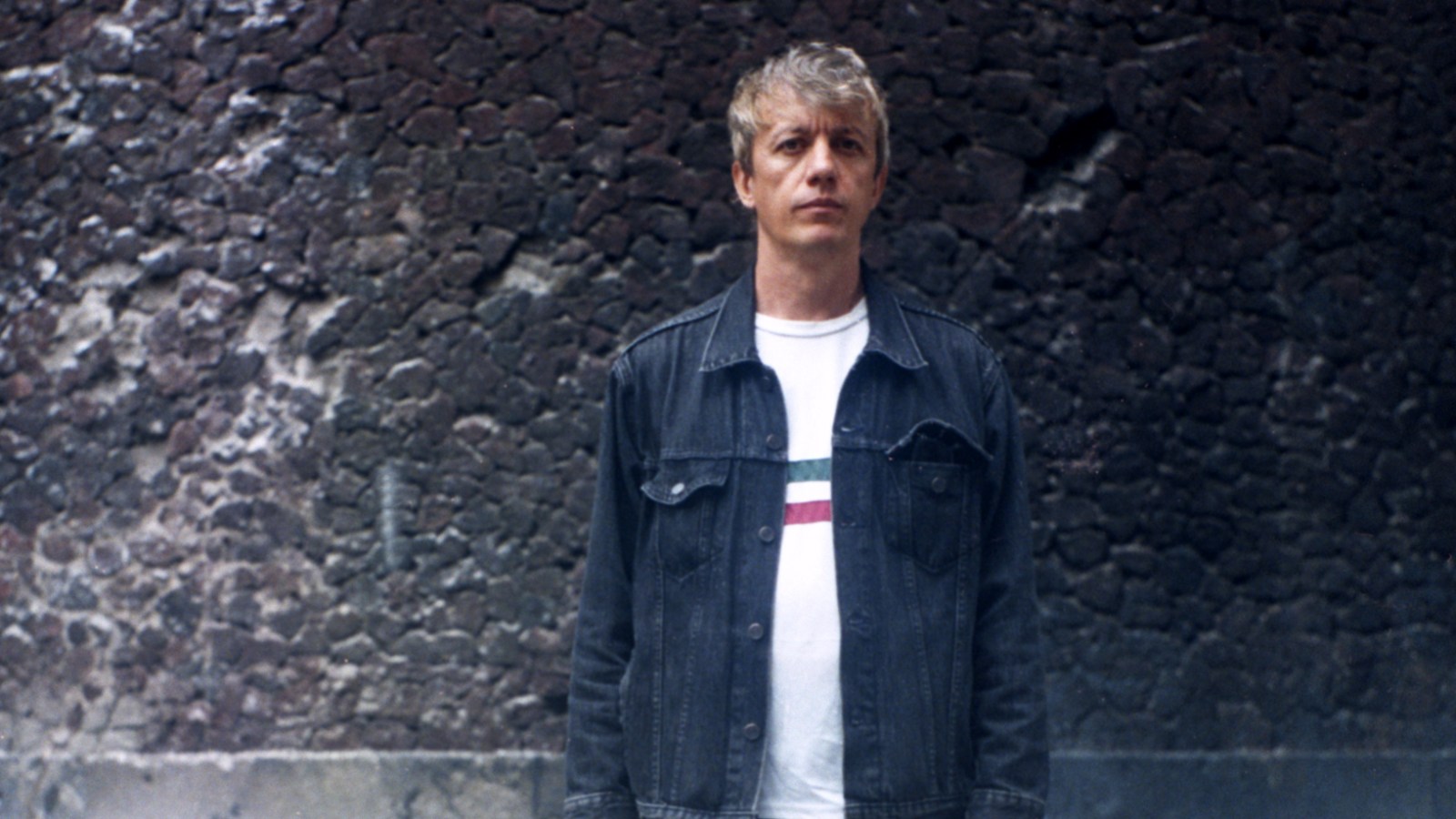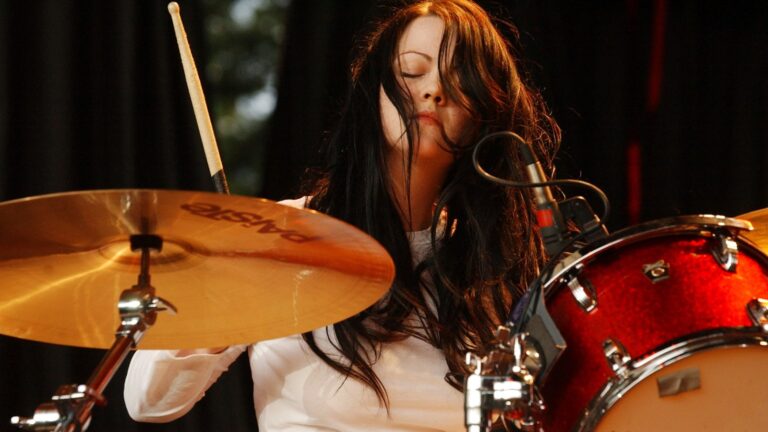Steve Gunn was sitting in the kitchen of his Brooklyn apartment, long after midnight, when he wrote the title track for his remarkable new album, Daylight Daylight. The words came easily, tumbling out gently over finger-picked notes: “Drive down to the lake, it’s not hard to find/Water’s cold, sun continues to shine…”
He didn’t think the song was finished, but it was getting late, so he put the demo aside and didn’t listen to it for another day or two. When he did, he was struck by what he heard. “I felt like I’d captured something,” the soft-spoken songwriter and guitarist says now, on a Zoom a few days ahead of the album’s Nov. 7 release. “A sense of impending doom, but also a sense of peace, and finding hope within this chaos.”
Gunn was starting fresh at the time after releasing three albums on Matador Records between 2016 and 2021. Those years brought a new swath of fans to Gunn’s meditative folk and rock sounds, showcased on low-key masterpieces like 2019’s The Unseen In Between. But that was always only part of what he did, coexisting with farther-out instrumental explorations and improvised work of many flavors, and now that chapter was over.
“I’d been freeing myself up from a lot of things, and I wanted to make a record that reflects that,” he says. “I wanted to step out, be a little more independent, restart my process of songwriting.”
Working on his own at home, he demoed songs like the wonderstruck “Loon,” inspired by his experience hearing those birds’ high, haunting call on the northern lakes of New York’s Adirondacks region. “I related to the sound that they make at night,” he says. “It’s so melancholy and beautiful. I became fascinated with them.”
Other songs, like “Nearly There” and “Morning on K Road,” thoughtfully consider themes of death and rebirth. He wrote the latter song after a chance encounter with an old friend he hadn’t seen in a while. “We hung out for a few hours,” he says. “It was a beautiful time. When he was walking away, I felt this heaviness. And he passed away shortly after that.”
When he had enough demos in hand, he sent them to his friend James Elkington, a skilled guitarist and producer who’s worked with Gunn since 2014 (as well as contributing to records by Jeff Tweedy, Joan Shelley, and more). Though they’d drafted bands full of talented friends and session musicians in the past, this time they decided to keep it to just the two of them, recording together in a light-filled attic full of guitars in Elkington’s Chicago home.
“It felt a lot more personal, more intimate,” Gunn says. “I really like to work off the cuff and be spontaneous. It’s where I come up with my best, my most meaningful material. I wanted to not be in a fancy studio and not have this amazing band…. It felt very freeing.”
After they got the basic tracks for the album down, Elkington wrote gorgeously understated arrangements for the songs — the kind of string charts that truly earn the overused term “cinematic,” deepening the delicate tones in Gunn’s music without ever distracting. “He has a really amazing ear, and an ability to get underneath the music and support it,” Gunn says. “That’s what I needed.”
Gunn ended up choosing to release Daylight Daylight on No Quarter Records, a small, Pennsylvania-based label that has attracted some notice in recent years as an artist’s haven. He says being part of a modest operation where his labelmates include songwriters like Will Oldham and the late Michael Hurley suits him. “I just want to keep making music and putting records out,” he says. “I don’t want to have these big campaigns. I just want to try to be an honest artist and let it come naturally.”
Toward the end of the recording process, he revisited that song he’d recorded late at night in his kitchen. It reminded him somehow of the famous story about Neil Young sitting by a fireplace and recording “Will to Love” in a single take in 1976. He called the song “Daylight” at first, until Elkington suggested doubling the title. “And I was like, ‘That’s the name of the record,’” Gunn says. “Rebirth, beginning again, letting some daylight come into the darkness. It all just clicked.”



